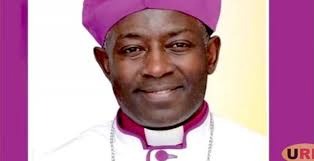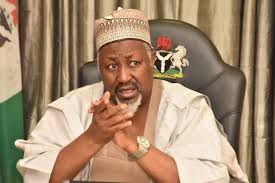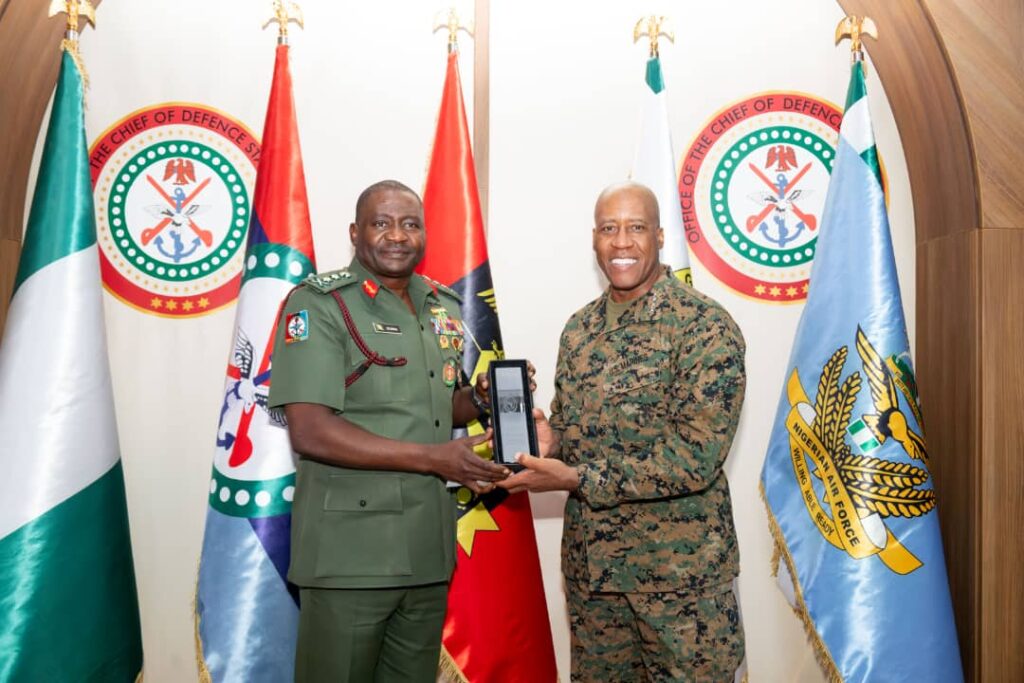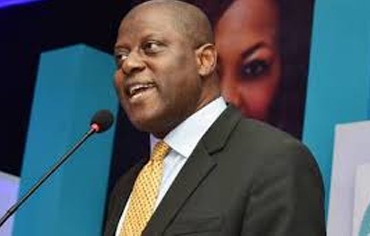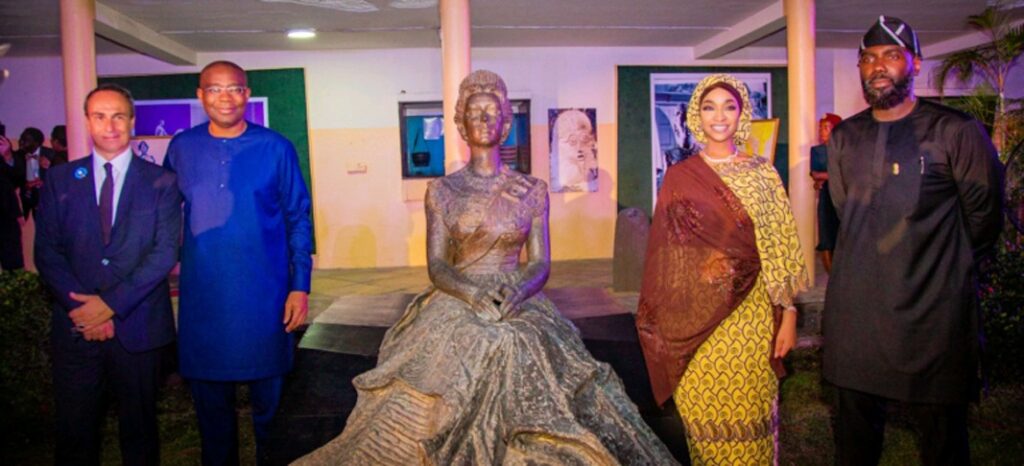The head of Uganda’s Anglican Church on Wednesday said Justin Welby, who has resigned as Archbishop of Canterbury, had split the global Anglican communion.Stepping down as the spiritual leader of Anglicans worldwide on Tuesday, Welby said he had failed to ensure a proper investigation into allegations of abuse by a volunteer at Christian summer camps decades ago.The Church of Uganda has long been at loggerheads with the Church of England on its stance on homosexuality, and said last year it no longer had confidence in Welby.The Church of Uganda stopped recognising Welby’s authority over his “inability to uphold the historic…
Author: Alade Adisa
Minister of Interior, Dr. Olubunmi Tunji-Ojo has warned the Nigeria Security and Civil Defence Corps (NSCDC) Mining Marshals to avoid involvement in illegal mining activities.The minister gave the warning during the passing-out ceremony of the 3rd batch of newly trained mining marshals on Wednesday in Abuja.Tunji-Ojo, represented by Ahmed Ja’afaru, Secretary to the Civil Defence, Correctional Fire and Immigration Services Board (CDCFIB), said that the board would not hesitate to sanction any erring personnel.He warned the mining marshals to abide strictly by the code of conduct and Standard Operating Procedures (SOP) guiding the operations of the Corps.He said that the…
A report by Beacon Security and Intelligence Limited (BSIL), a security risk management and intelligence consulting company has shown that no fewer than 971 Nigerians were abducted across the country in October 2024. This comes amid the emergence of a new terror group, Lakurawa in the northwestern part of the country. According to Daily Post, the data is contained in the ‘October 2024 Nigeria Security Report’ by BSIL and made available to newsmen on Tuesday.The report said there’s a deterioration of security metrics of incidents, abductions and fatalities in the country, warning that the rising numbers suggested that 2024 was…
The General Overseer of the Redeemed Christian Church of God, Pastor Enoch Adeboye, has said that an oil cabal in Nigeria is working alongside international oil companies (IOCs) to undermine the operations of private refineries like Dangote Petroleum Refinery. Adeboye, who spoke during his address at the November 2024 Abuja Special Holy Ghost service, called on Nigerians to pray for divine intervention against the actions of unscrupulous oil marketers who are intent on causing hardship for the populace. He said that oil marketers are working hard to obstruct the refinery’s operations, following previous sabotage incidents affecting Nigeria’s four state-owned refineries.…
Two soldiers were killed when gunmen attacked an army checkpoint at Ekenobizi, a border community between Abia and Imo states in Umuopara, Umuahia South Local Government Area on Wednesday morning. According to a military source, who spoke on the condition of anonymity, the attack occurred around 6:18 am. The source said the gunmen arrived in a white Lexus (350/400) model, although the exact number of attackers could not be confirmed. Lieutenant Colonel Jonah Unuakhalu of the Joint Task Force South East Operation UDO KA confirmed the incident in a press release on Wednesday. He said: “In the early hours of…
General Michael Langley, the Commander of the United States Africa Command, has visited the Chief of Defence Staff, General Christopher Musa, at the Defence Headquarters in Abuja. The Director of Defence Information, Brigadier General Tukur Gusau, noted that the AFRICOM Commander was accompanied by the US Ambassador to Nigeria, Richard Mills, in a statement released on Wednesday. Gusau, who said Langley commended the Defence Headquarters’ strategy in combating insecurity, stated, “General Langley praised Nigeria’s approach to tackling insecurity within the country and its strategic leadership role in the sub-region. He also congratulated the Chief of Defence Staff on his appointment…
ABOUT 28 million Nigerians – mostly in the rural areas – have no access to banking, the Central Bank of Nigeria (CBN) has said.The apex bank Deputy Governor, Financial System Stability, Philip Ikeazor, who stated this, added that the CBN and stakeholders have been working tirelessly to reduce the financial exclusion rate.The demographics mostly affected by this financial exclusion are: women, youths, rural communities and Micro, Small and Medium Enterprises (MSMEs).According to him, as a result of these efforts, the exclusion rate had dropped from 46.3 per cent in 2010 to 26 per cent as of last year.He said: “Despite…
A tax expert, Dr. Titilayo Fowokan, has expressed excitement on the recently gazetted withholding tax regulation titled, ‘The Deduction of Tax at Source (Withholding) Regulations, 2024’, maintaining it aligned with international best practices in taxation as it will enhance business operations and economic transparency.Fowokan, who said this in a statement, declared that the alignment will enhance the efficiency and effectiveness of tax collection in the country, which becomes effective January 1, 2025.She said, “The revised legislation offers rate reductions and full withholding tax exemptions for businesses, including SMEs with annual turnovers up to N25m.”“The regulation clarifies the application of withholding…
The National Commission for Museums and Monuments (NCMM), in partnership with Coronation Group Ltd., has unveiled a permanent exhibition of late Ben Enwonwu’s 1956 sculptural masterpiece of Queen Elizabeth II.The exhibition, entitled “Building A Nation: Ben Enwonwu and the Impact of Sculpture”, also in partnership with Fine Art Auctioneers, Bonhams, was unveiled at NCMM in Lagos on Tuesday.This entailed a dynamic look into the career of Nigerian master sculptor, late Ben Enwonwu, as the exhibition took art lovers through his process of production of the masterpiece.The exhibition also featured some of the artist’s world-famous works, highlighting his influence on Nigerian…
The police have announced the death, on Monday, of 10 persons at the Yanfari village in Taura Local Government Area of Jigawa State. Confirming the accident in a statement on Tuesday, Jigawa State Police Command’s Public Relations Officer, DSP Lawan Shiisu Adam, said it had begun an investigation into the auto crash. He said, “The Jigawa State Police Command regrets to announce that on November 11, 2024, at about 2130hrs, a fatal motor vehicle accident occurred in Yanfari village, Taura LGA, along the Kano-Hadejia Road.” The spokesperson said the accident occurred when a Toyota Hummer bus with registration number HDJ…


